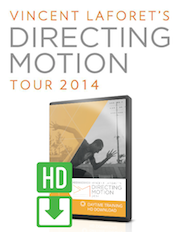On Friendship, Managing, Respect and the Director/Actor dynamic.
Recently I just witnessed something on a TV show that reminded me of one of the most important series of lessons I’ve learned over the past decade, and I think it’s a great opportunity to highlight those difficult lessons on this blog. The TV show involved a bar owner who was running his bar with a bunch of his friends… and it was failing because they were too busy having fun together as opposed to running an effective bar. Then he had to make a few tough decisions…and it went downhill from there in a flash. It was like watching a train wreck in slow motion. I figured that by writing this post I might save a few of you a lot of the tough lessons that I had to learn first hand (a.k.a. the HARD way) over the past decade, as I went from being a freelance photographer, to running a commercial photography business and eventually to managing people on small, to large sets as a DP and eventually a Director and Producer.
So here we go…
As you move into the world of managing others, of being a "department head" a "boss" or God-forbid a "leader" you realize that those titles come with a certain amount of responsibility (naturally) but also with one unwelcome caveat: when you are in charge of a group or an employee, making the right decisions takes priority over being their friend.
That sounds harsh doesn’t it?
But truth be told, making the right decisions – and often the tough ones that may not be pleasant – will benefit everyone in the long term. The problem is that you only tend to learn that lesson over time and with the perspective you gain following tough failures…
This is an especially difficult lesson, if you started off as friends prior to the relationship evolving into a employer/employee relationship.
But once this happens, the nature of the relationship changes – and things are different for as long as that dynamic exists – like it or not.
For the employer/employee relationship to work for BOTH parties, the correct dynamic needs be set from the start. The employer hands out specific tasks and the employee executes them with their expertise. It’s pretty straightforward – and not an ego thing. If egos enter the picture, and if that dynamic is challenged by either party, things will break down at lightning speed.
There needs to be respect for the above fact – and mutual respect between both parties.
Why is this necessary? Well once respect is lost in a relationship, it’s almost IMPOSSIBLE to regain. That’s another tough lesson. Just as it takes years to establish a good reputation, one isolated incident can destroy it in seconds. Same goes for respect & credibility in any relationship. Building a damaged reputation back up takes a tremendous amount of work – and it can actually be impossible to do in certain circumstances.
Respect is earned, not something you demand – another key thing to discuss in another post. But the start of any professional relationship should start with a base level of respect in both directions, with a clear understanding of the employer/employee dynamic.
Always keep in mind that "we’re all in this together" but that every group needs to have someone set clear goals, and to help keep everyone on target. And being that person, the "leader", is something a lot of people want – until they actually get their wish and see what comes with it. I’ve in fact seen quite a few people decide never to lead again once they’ve been given the opportunity to do so.
Here are a three key lessons I’ve learned over the years:

Early on in my freelance photography career (after more than a decade working solo, or as a staff photographer (i.e. employee) I often had one full time employee and several freelance employees or assistants working with me. The truth is that I always picked people that I liked – as one should – and that they were almost always very qualified. A few of them were OVER qualified for the jobs in fact, which actually requires you to be extremely vigilant about how you manage the relationship, because both parties are aware of that fact, and the dynamic of the boss/employee relationship can be very delicate.
In my early 30’s I wanted to work hard during the day, and when the job was done to let loose. One thing that I would routinely do was to play XBox games with employees, who were in fact: my friends. That was a fatal "management" mistake. The game playing in itself wasn’t the best idea (even though it was happening after the work day had ended, and out of the office), but the fact that the game invited trash talking and the need to humiliate the other player as often as possible was a recipe for disaster 😉
None of this is a problem with good friends – we dish it out and take it. The problem is that once the game is done, it has eroded certain aspects of the relationship. If both parties can go back to how it was prior to playing those games or activities together when they are on set the next day: great. But the reality is that most people can’t. And things can truly start to break down when they bring the type of "one-upmanship" or "challenge" relationship to the set, or worse: in front of clients.
It can be a mortal mistake both to the job and ultimately the professional relationship.
Having an employee talk back to you – even in a very playful way – in front of a client can break down the mood of a shoot. Suddenly you’ll find yourself as a "boss" trying to keep that person in check, or worse trying to mend your bruised ego. All you should be focused on on the set is on the job at hand: not managing relationships amongst the crew.
If you are challenged on set as a "boss" what is the worse thing you can do? Well: You can dish it back to the employee, as you naturally did on the Xbox game… The problem: you now look like a jerk, because dishing any negative or derisive comments within a boss/employee relationships reflects terribly on you as a manager.
And all of this started because you wanted to be their friend! You wanted to make them a "happier" employee in a "loose" environment. And all you’ve accomplished is created a work environment filled with stress.
This can truly come to a head when something goes wrong and you have to make things right, especially when you need to ask that person to do something that is difficult: either a tough job, longer hours, or an unpleasant task. It suddenly can become personal as opposed to being a simple request that "needs to get done" for the sake of the job or the business.
Then comes the feeling of guilt that you get as a boss. It’s tough to go from being a friend playing video games, to asking your friend to do an unpleasant task.
While at times it may be a good leadership trait to roll up your sleeves and get deep in the mud to show your employees that you are far from "above" doing that job, there are many situations where you need to let them do that job, so that you can continue to do your job of managing, and make sure that all of the other things are moving along smoothly as well. This is especially true when you are in charge of a larger crew or production that needs someone to lead multiple aspects happening simultaneously, and the job can’t afford to have the manager get involved in one specific task alone – at the expense of managing the many other tasks that need her attention.
The ultimate irony of trying to "be a friend" is that once that respect is lost, if you don’t reset the parameters very quickly and effectively by reaffirming them decisively – you may ultimately lose that friend because the relationship becomes untenable for both parties.
Worse: you may have to stop working with that person all together. And letting someone go, or firing someone is always one of the most difficult things for an employer to do. Obviously it’s even more difficult when it involves friends. Worse: it’s gut wrenching when you realize that you may have been ultimately responsible for getting the relationship to that point…
This is in fact what I had to do with one of my best friends and assistants. After several on set challenges (often made in jest) I found that the only solution was to work with someone else. The good news is that after a 1-2 year break, and my broaching the situation with that person after quite a few months of no work going their way, and clearly redefining the nature of the relationship looking forward, we’ve worked together ever since without a problem. We’re still very good friends as well.
But no more XBox games… and a clear display of mutual respect on set in front of clients and to one another.
The second lesson I learned is not to allow employees to cut corners or days short unless you know you can truly afford to do so. Again: no one wants to be the jerk boss who insists that someone stay in an office or on a job until ALL of the tasks for the day are finished. Sometimes a few dozen e-mails need to be read or sorted. At other times lenses or gear have to be cleaned, batteries charged. After a very long day, or worse a slow week – you might feel the need to let someone off early, or acquiesce when they ask.
The important distinction to make is: if it’s not a routine request, or you’re about to shut down (FOR SURE) for the weekend, and that you will be able to pick up the slack when you start up next, be cool and let them loose. But this can’t become a habit. Because if it does: everyone pays. And btw: the slack always comes back to bite you in the ….
Things will get backlogged, things will invariably fail and you ALL pay for it.
Once again: ironically, you become the bad guy when things get backlogged or the gear isn’t ready because you’re now the one "overloading" your employees with too much to do… and truth be told: while the backlog may have started with their request to cut a corner or leave early the day prior, it’s ultimately YOUR fault for mismanaging the situation. You need to know when you can afford to give the people a day off, and when you have to say no, because you know the business or the job can’t afford to fall behind.
Saying no to a perfectly reasonable request is very very difficult mind you. But you always need to put the job and/or business first for everyone’s long term benefit. That’s the hard part of being an effective "boss." And I can tell you it often sucks – to be blunt.

The third lesson I’ll share with you is geared more at people who want to be directors, and who work with other key members of their crew and notably actors.
I’ve been relatively lucky so far, because I had the fortune to learn many of these lessons when I was running a much smaller business. I’ve made, and have witnessed these mistakes on sets – and I can tell you that the lessons above are intensified to exponential degrees when you work with a larger crew/cast.
One of the biggest threats to any director on any set, is losing the respect of their crew. Often the easiest way to do this is by not being prepared, or worst not knowing what you want to achieve as a group.. but that’s for another blog post.
The lesson that I want to share here is one that is perhaps one of the more difficult ones, and one that takes the greatest of disciplines. In certain situations, particularly on medium to large productions (the bigger they are, the bigger the stakes are and the egos) you actually CANNOT be someone’s friend even if you’d love to be… At most you can express strong respect for the other person, but perhaps it’s best to leave it at that until you get through your first production together…
This is a bit more of a complicated concept, and the easiest way for me to address is, is in the director / actor relationship.
All directors get to work with tremendously talented actors. It’s not uncommon to work with actors that have far more experience than you do… and one wonders: how does one manage that relationship dynamic?
Well, it’s actually very simple. You as a director are not there to be the actor’s friend. You are there to do your job and to help create the best environment for them to do theirs and offer input whenever necessary.
Sounds pretty cold doesn’t it?
Well the truth is, each person has a set role. The actor is there to deliver the best performance possible. The director is there to help them get there – by whatever reasonable means necessary.
A few things are obvious: a director needs to have a clear vision for the film, a clear understanding of the script and story, and a strong ability to communicate those details to all of the crew and cast as concisely and precisely as possible. A director needs to make decisions in a decisive manner. One of the most surprising lessons you’ll read about in just about any top management book, is that it’s more important to make a quick decisions (even if it’s the wrong one,) then taking too much time and actually making the right one. Give that one some thought… but it’s almost universally agreed upon amongst top leaders, notably military leaders (where life and death are at stake.)
By nature, and actor looks to the director for guidance. Some of the best actors need little to no direction. Others need to have their hand held through the entire process – notably younger or less experienced actors.
The key is: the director is the ONE person on set who is there to guide them. The director is the one person who is looking at the screen on set and either "buying" or "not buying" the performance and how it will fit within the entire final product. And the director is the LAST person who can do something about the actor’s performance before it is too late and she decides to move on… the next group who will see that performance is: the audience… there’s nothing that can be done in post (short of virtuoso editing) to improve a mediocre performance (other than leaving it on the cutting room floor…)
Therefore the director is there to PROTECT and actor. And that’s where you understand that you’re not there to be their friend.
You’re there to be HONEST with them and to steer them in the right direction. And that becomes very difficult to do if you’re their friend first. If you keep a professional distance with the actor, the advice you give – ANY advice – becomes DIRECTION as opposed to advice.
The exchange becomes about getting the best performance on screen – as opposed to concentrating on keeping the friendship intact. And that applies to all department heads and even crew when it comes to being a director.
In my opinion this is one of the hardest lessons to learn: the less of a friend you are, the more professional the nature of the relationship, the more productive that relationship will be. At the end of the day, you want that actor to look like gold on the screen in front of the audience, with the performance of their lifetime.
No one will care about what take 1, take 10, or take 22 was like on set – that’s your little secret. You just need to get to take "X" that was perfect or at least very close to perfect. And even if you never became good "buds" on set, the actor will always respect you for pulling the best out of them on set for the rest of their careers: because both they and you, will watch that performance over and over again for the rest of your careers.
Some director friends of mine take this to the extreme: they never, ever go out socially with actors. They never go out with certain department heads during production. It can lead to a bit of an isolationist life. Think about this and look at a few of the top directors throughout history… many of them lived an extremely isolated life.
Personally I try to find a balance and not go to this extreme. But if you want to go off on a bender with an actor – it probably makes sense to do so AFTER you’ve wrapped production. Better yet: leave early if you’re out to dinner during the production and the alcohol is flowing. You won’t be lying to anyone if you tell them you have work to do in preparation for the next day’s shoot. Studying your notes that night will do everyone a lot of good the next day as opposed to staying out late. And it also sets a good example and a certain tone. Being hungover and not at your sharpest the next day erases any of the good will you may have created the night before. If you do however want to go out on the night on the town: never show weakness the next day. Never let them see you sweat. And never, EVER, complain about it. This goes for ALL crew members in fact. I brought the example above up because I’ve seen a lot of directors lose the respect of their colleagues in these instances – and they more often than not know it. If they make these mistakes, the best ones know how do deal with it the next day: and specifically how NOT to whine about their decisions… you don’t just make decisions on set… people are always watching you like it or not. Again another thing that comes with being a "leader."
Having a fun, relaxed set is always a goal – but that spirit is easily vanquished when the set becomes inefficient, mistakes are made, and days go one forever as a result. That’s a great way to make sure you are not only part of an unhappy crew, behind schedule, over budget – and eventually fired.
Making sure the actors hit their lines, let alone deliver amazing performances is the single best way to raise morale on set. It’s palpable.
If you keep relationships professional – and amicable of course – you will discover something very special. Even though you will be busy "leading" your crew and keeping them on target and on time by making tough and sometimes unpleasant decisions: your ability to embrace that leadership role and to do it effectively will make you a LOT of friends on set. While the relationship may not be as "buddy buddy" as you’d like – it will lead to loyalty and a cohesive crew with one common goal: making their days and hopefully ultimately making art. Because remember, the more they respect you, the harder many of them will work for you to help you achieve a common goal. And then everyone wins.
Let me know if you like these types of posts in the comment section, and if you do I’ll keep them coming. I know many of you would likely prefer to read about the latest gadget… but the truth is that no single piece of equipment can dig you out of losing an actor’s or a crew’s respect…
Tags: Management













Probably one of the best post I have read in this blog, and also in a while.
Gear can’t make you a good professional. This info is way more valuable.
Vincent thanks for sharing, and please keep this posts coming.
Hey Vincent, just want to throw the quick comment offering appreciation for posts like this. Most people hate in-depth, long posts, but they’re certainly the ones that are the most valuable. I’m young and have learned one or two of the things mentioned above the hard way, but certainly not everything you touched on.
Good to have a resource like this, as even if you’ve experienced some of this stuff the hard way, it still helps to have it all spelled out for you again, so you can remember, reflect, and hopefully prevent bad outcomes in the future. Thanks again.
Vincent Laforet Reply:
June 28th, 2013 at 11:44 pm
@Rick McClelland, Appreciated!
This is maybe the most useful thing to me personally that you’ve ever written. (and that’s setting the bar VERY high). This is so useful for someone in my position.
You alluded to two similar future posts – I can’t wait to read them. Thanks so much for this.
Vincent Laforet Reply:
June 28th, 2013 at 11:44 pm
@Alex Schwindt, I guess it was worth it then! Publishing these is always weird as you open yourself up quite a bit more than the usual blog post… but given the reaction it seems well worth it!
Alex G. Reply:
July 3rd, 2013 at 10:48 am
@Vincent Laforet, opening yourself up is an act that separates plain skilled people from truthful -future- masters. In my humble opinion. The meaning of Sensei (japanese word) says everything.
So, again, thank you very much for sharing these weird things 😉 !
Very good post and the most difficult balancing act to do on the set or at the office.
Keep’em coming. The timing and advice of this post is actually quite perfect for me!
Thanks!
Wonderful post! How a man carries himself is what makes him a professional, not the gear in his bag.
This is advice that can change lives. Keep it coming.
This advice can change lives. Keep it coming, it is much appreciated.
Gold advice Vincent. Thanks!
Dude, great post.
P.S.: …still anxiously awaiting the last Movi segment for normal coverage. Actually…any footage with that rig…
Properly one the best blogs I have read.
Hi Vincent, Been following your posts for a long time now. This one was especially good and had a lot of heart. Looking forward to the other posts you alluded to. Would like to see one where you address the issue of dealing with agencies and clients in and out of the work space. Thanks for everything so far.
Vincent Laforet Reply:
June 28th, 2013 at 11:45 pm
@Pepe Gomes, Thanks Pepe!
Really helpful. Definitely more please!
Please stay on that subject. The gear is fine but this kind of advice is golden. More please.
Great post! There’s a lot of applicability here in business and any manager/direct report relationship. That power dynamic is critical. Thanks for sharing.
Sound words. Real world advice that sadly is not being taught in film schools, or any academia, for that matter. Many folks, particularly younger generations, are entering the workforce with little, or no, interpersonal skills.
Vincent Laforet Reply:
June 28th, 2013 at 11:45 pm
@Jeffrey R Farmer, That’s what you get when we are talking via text/e-mail as opposed to meeting in person and sitting down for a face to face…
Great post Vincent. Keep them coming… 🙂
Great article! This is one of those pieces of advice that anyone, no matter how big or small the production is, can benefit from.
I’ll happily read on.
Couldn’t agree more with you, Vincent. Had have the same experiences.
By the way, I like the current mixture of your post.
Vincent Laforet Reply:
June 28th, 2013 at 11:46 pm
@Moritz Janisch, Appreciate it!
thanks for this Vincent. I sent to a number of people I know. I was lucky enough to spend some time as a Naval Officer where they taught and drilled these things into you. I have since realised on sets and in business that a lot of leaders dont know these basics and whenever these basic rules were ignored, unhappiness was to follow. The Navy told me that fraternisation with junior officers or non-commissioned officers were off limits. One drink was ok, but they are not to be your best bud as the balance between you will be disturbed and once that happens you are never sure if they will take orders from you again. The easiest solution. Get some friends outside the workplace. If you dont have any, relax a bit more, all work and no play….
Vincent Laforet Reply:
June 28th, 2013 at 11:46 pm
@theunis stofberg, That’s why military people make great leaders both in and out of the uniform… outside of the military sadly very few people seem to learn about leadership..
Really great article! Thanks a lot for passing on those tips, hopefully allowing us to avoid those unpleasant situations (especially if you started as a friend “group” to begin with before filming).
Hard advice to follow, but it hits a crucial skillaspect of management.
Thanks Vincent!
Gonna have to agree with the other commenters. Amazing post.
Whatever experience I have directing small-medium commercial sets echoes everything you mentioned to a smaller degree.
I feel so much of being successful in filmmaking, and the visual arts in general boils down to SO MUCH besides just the art itself. Yes the final product has to be great, but I’ve found a pretty sizable chunk of being successful in monetizing one’s art is: being able to properly handle meetings, close deals, negotiate budgets, properly pitch ideas, run a set ^^, know and manage your personnel, etc…
Overall, loved the post and look forward to seeing more from you!
Also some in depth BTS videos would be awesome 🙂
Vincent Laforet Reply:
June 28th, 2013 at 11:47 pm
@Ron Parida, Oh yes! I spend maybe 5% of my time actually shooting… it’s terrible but true! All the rest is meetings, pitches, con calls, prep and post!
As a film student I can’t even tell you how great this post is. Really, there are so many young guys entering this industry who need to hear it. This understanding can make or break a set. Honestly when a director does the right thing on set as a DP and Audio Technician I can tell you it makes my job way less stressful and a lot more fun.
Vincent Laforet Reply:
June 28th, 2013 at 11:48 pm
@Jacob Fisher, We’re all in this together… discipline and prep starts from the top… and affects everyone in every direction.
Really good article and very useful advice – not just in the film/photography world, but in every area of work.
Thank you Vincent.
Each member of a crew is ‘gear’ if you like; they all have a function in the production of the piece. If my camera kept asking for days off I would be most disappointed, even though I have a feeling bordering on love for a prized lens, it’s not really because of the lens itself, it’s because that lens empowers me to do things that other lenses won’t, it’s a work relationship. We do the work because that is what we love to do, otherwise it may be better to get a different job? Don’t you think?
Thank you for your wisdom Vincent, I sincerely appreciate it, definite treasure.
Great post! A few of these lessons I’ve learned the hard way on set, others I will definitely keep in mind.
Thanks Vince! Best post I have ever read.
Great post, clear, well written and a subject I needed to read about! I would definitely like more such posts.
Is very difficult to differentiate, to safeguard the working friendship and respect boundaries between porfesionales from different areas and different levels of responsibility within a production. I know from experience that everything you say is true and this is the most valuable kind of information, for which no manual or tutorials, because they are based on experiences. Thanks for sharing your experiences
Is very difficult to differentiate, to safeguard the working friendship and respect boundaries between porfesionales from different areas and different levels of responsibility within a production. I know from experience that everything you say is true and this is the most valuable kind of information, for which no manual or tutorials, because they are based on experiences. Thanks for sharing your experiences
Hey Vincent,
A VERY timely post, as I’ve actually just come off a set experience and can really visualize how being a ‘friend’ would absolutely kill the production. It’s such a trickle down effect – from director to actor, from actor to takes, from takes to crew, from crew to efficiency, and finally efficiency to budget. You can’t micro-manage, and so keeping top tier professionalism your priority trickles down as well.
Great insight – and very much appreciated from someone who’s working their way around a set and figuring out how to interact with people ON set. Thanks!!
-Karl
First post I’ve ever felt the need to comment on, merely because it’s so good. Very useful and valuable to filmmakers of all ages with different levels of experience. Please keep up the amazing work, I feel honoured to be getting this info from you
Thanks for the precious advice, Vincent.
Would you please tell us whether any top management books were helpful to you or you learned the lessons the hard way only ?
Thanks.
Vincent Laforet Reply:
June 28th, 2013 at 11:49 pm
@Paolo Nobile, Mostly the hard way… I do have several management books but I am still looking for time to read them! So I guess I’ll keep learning on the job 😉
This is great advice that I will remember for a long time, Thanks!
Vincent, your perspective and advice is bang-on. I just went through this on a 5 day shoot in a remote location and faced my worst nightmare as my other shooter (only experienced in shooting sports for broadcast tv) wouldn’t take any direction on how to operate dslr’s or how to compose the shots I needed on the multi-cam shoot. It was a critical mistake on my part and I had to own it and learn from it …. Work first, friends second.
Working with you on the forest shoot in Vancouver has reminded of keeping focused on the job at hand. Thank-you.
Vincent Laforet Reply:
June 28th, 2013 at 11:50 pm
@J-dog, Appreciate it J-Dog – good to hear from you!
This advice can change lives. Keep it coming, it is much appreciated.
A great post packed with major advise. It’s hard to find honest articles about human relationships and dynamics in our field, and it is much more important than any gear or budget. Hope you’ll keep on writing and sharing them, you mentioned few subjects you could write about in your post and I can’t wait to read more about them!
Thanks Vincent for taking the time to share years of experience.
Amaizing !
Vincent Laforet Reply:
June 28th, 2013 at 11:50 pm
@WSEISEONINJA, thanks everyone for the great comments!
Thank yo very much for this post. You can find gear review anywhere these days but these kind of posts are harder to find.
I do appreciate them and look forward to more posts.
Regards from
Colombia.
Hey Vincent,
This are some of the problems i was also going through…. But now i think i got the solution….
Thanks and Keep on sharing
one of the best article ….it shows how this small details can ruin your production in seconds …thanks for sharing Vince …..keep them coming
I’ve worked with family for years and as my sons have gotten older and have now started expressing themselves and sharing their ideas I find it difficult to keep the relationship healthy. I really enjoyed your open and eloquent descriptions here. Thanks for this.
Vincent Laforet Reply:
July 8th, 2013 at 12:31 am
That’s got to be difficult… thanks for sharing yourself!
Wow, really: thanks. I think this post shares knowledge about one of the pillars of this profession, one of the less known or spread. There are thousands of (good) technical essays but less non-technical (or is it group tech?) human-team related writings. So, Vincent, let that knowledge flow through your hands as you have done here. In other words: thanks, really valuable info. As always. Namaste. Alex
I have bought gear on your recomendation.
But this post has been way more important.
I should know it all and i still make these mistakes on almost every shoot.
Thanks to your post i will try to be more aware of my behaviour on set.
Would be very happy to read more of these posts
Please keep this kind of post coming, i find them really helpful for someone like me who is just starting his career, i appreciate you sharing these with us .
Thanks Vincent